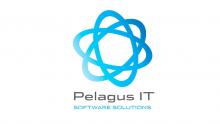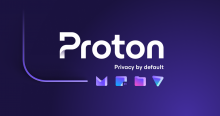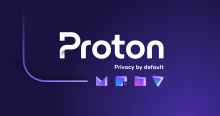Desktop Engineer (Inbox)
Location: Skopje office (70%)
Apply at: https://job-boards.eu.greenhouse.io/proton/jobs/4634890101
Join Proton and build a better internet where privacy is the default
At Proton, we believe that privacy is a fundamental human right and the cornerstone of democracy. Since our inception in 2014, founded by a team of scientists from CERN, we have dedicated ourselves to providing free and open-source technology to millions worldwide, ensuring access to privacy, security, and freedom online.
Our journey began with Proton Mail, the largest secure email service globally, and has since expanded to include Proton VPN, Proton Calendar, Proton Drive, and Proton Pass. These tools empower individuals and organizations to take control of their personal data, break away from Big Tech’s invasive practices, and defeat censorship. Our work impacts hundreds of millions of lives, from activists on the front lines defending freedom to leaders in governments protecting sensitive information. In some cases, Proton’s services have even been instrumental in saving lives by enabling secure and private communications in high-risk situations.
Proton is a profitable company that does not rely upon VC funding, supporting over 100 million user accounts with a growing team of over 500 people from over 50 different countries, from the world's top companies and universities. We value intelligence, learning potential, and ambition in our hiring process. Adaptability is key as we navigate uncharted territories and redefine how business is conducted online.
Hiring at Proton is highly selective, with less than 1% of candidates hired. We believe smaller teams of exceptional talent will always prevail over larger teams with lower talent density. You will have the opportunity work with many of the world's top minds in their fields, ranging from former international math and science olympiad winners to chess champions.
We have a global mindset and big ambitions but remain a start-up at heart. We value empowerment and flexibility and keep our structure flat to keep moving fast and avoid unnecessary politics. Tired of blending into the crowd? Join us and do work you can truly be proud of. Check our open-source projects here!
The Team
The Inbox Business Unit drives the development of Proton Mail (our flagship product line) and Proton Calendar. We are a cross-functional team of (ballpark figure) 60 engineers, product managers, designers and data analysts. We are committed to constantly push the boundaries of what we can achieve. It’s not always an easy journey, but it’s one that offers the chance to create meaningful impact and drive lasting change.
The Inbox Desktop team is responsible for developing desktop clients of Inbox i.e. Proton Mail Desktop App, Proton Mail Bridge, and the Export tool. Because most of these applications are premium offerings of Proton, we put a very high emphasis on product and engineering quality. We are in the process of rebuilding our client applications on a new, innovative technology stack. As part of this technological transformation, we are also restructuring our team, and we are looking for a smart and ambitious Junior Software Development Engineer to strengthen our team by helping on Proton Mail Bridge and the Export tool.
Tech Stack and Tools
- Proton Mail Bridge is developed using Golang, C++, Qt, and released on 3 platforms (macOS, Windows, Linux).
- All our client-code is open-source and GPL3.
- Our backend runs on premise in Proton's data-centers.
- To organise our work we use standard tools such as Jira, Confluence, and GitLab.
Purpose of the role
As a Junior Software Development Engineer in the Inbox Desktop team, you will play a crucial role in maintaining one of Proton's most mature desktop offerings, Proton Mail Bridge. We expect you to be customer-centric, continuous learner, passionate about technology and usability. You are an adept at turning technical complexities into seamless user experiences. Effective teamwork, collaboration with Product, Design, APIs, and your team, and data-driven decision-making are essential aspects of this role.
In the Inbox organisation, we believe that a psychologically safe environment is critical to foster innovation, collaboration, and growth. We are rooted in science, and according to both academic research and empirical evidence, teams that feel safe to take risks and express their ideas are more likely to be innovative and perform better: you will play a key role in helping us creating such an environment across the entire organisation.
What you will do
- Develop, deploy and support high-quality user experiences on Proton Mail Bridge and the Export tool including existing and new feature development.
- Collaborate with QA, designers, and product managers, to make our product better and better.
- Work with senior software engineers to learn how to write clear, concise and testable code to maintain and elevate the quality of our codebase.
- Analyse the MIME structure of messages and take an active part in test automation.
- Strive for frequent releases, write code with growing test coverage and use CI.
- Maintain our team and system documentation.
- Take part in team activities, such as project meetings, code reviews, and pair programming.
- Foster a culture of learning, creativity, and accountability for the best possible work.
Job requirements
While we prefer candidates who cover the entire skillset, do not hesitate to apply if you are not an exact match, as we are willing to help you grow in certain areas.
- Coding: Professional software development experience with Golang (a significant portion of the codebase is in Golang) or other object-oriented compiled languages such as C++ or Rust. Familiarity with Qt. Experience with writing automated tests for your code. Comfortable using collaboration and developer efficiency tools such as Git, GitLab, GitHub, IDEs, etc.
- Desktop software development: Experience in developing and troubleshooting desktop applications on Windows, macOS, and Linux.
- Problem-solving: Strong problem-solving skills and the ability to troubleshoot issues efficiently remotely while protecting our user’s privacy.
- Collaborative skills: Proven ability to work collaboratively in a team environment, excellent written communication skills, and experience working in a distributed team setup.
- Product mindset: A product mindset with a focus on offering outstanding user experience in a successful business environment.
- Security focus: Understanding of secure coding practices and a commitment to maintaining high levels of security and privacy.
- Hybrid work environment: Able to work from the office (70%).
Bonus points for:
- Bachelor's or Master's degree (or close to completion) in Computer Science, Software Engineering, or a related field.
- Awareness of common security issues in client-side development, such as those in the OWASP top ten, and how to mitigate them.
- Familiarity with UX, accessibility, internationalisation, and localisation concerns and solutions.
- Experience with Grafana or other monitoring platforms.
What We Offer
- Office First: Collaboration is easier and more effective in person, which is why we have offices in Geneva, Zurich, Prague, Barcelona, Paris, London, Vilnius, Skopje, and Taipei. You can also enjoy working from home up to 30% of the time, while enjoying great company during our three core days in the office.
- Technology: We provide all the devices and software you need to excel in your role, ensuring you have the best tools at your disposal to achieve your goals.
- Food: Lunch and snacks are provided by Proton every day at our offices.
- Transport: We will always support our employees with transport costs through subsidising public transport, bike allowances, or parking spaces based on your office location.
- Stock Options: At Proton, we are all owners of the company and you get stock options when you join us.
- Flexible Working: You can define your own working hours as long as it works with team meetings.
- Learning and Development: We are committed to your professional growth. Proton offers various learning opportunities, including training programs, conferences and events, and continual learning.
- Employee Benefits: Comprehensive health insurance plans, competitive retirement savings options, generous vacation and leave policies, and wellness programs.
- Work that Matters: Proton is a community-first organisation, started with the support of a crowdfunding campaign and built with community input. To this day, Proton’s only source of revenue is user subscriptions. Over 100 million people trust and support Proton, and we put our users and community first in everything we do. Read more about our impact here.
Our Commitment to Diversity and Inclusion
At Proton, we believe diversity drives innovation and strengthens our mission to provide privacy as a default for all. We are committed to fostering an inclusive environment where all individuals, regardless of race, ethnicity, gender, age, sexual orientation, physical ability, or socio-economic background, feel valued and empowered. We strive to create equal opportunities, promote open dialogue, and support continuous learning to ensure every voice is heard and respected.
If you need any extra support or reasonable adjustments during the hiring process, please let your talent partner know.
Candidate Privacy Notice
When you apply for a position, refer a candidate, or are considered for a role at Proton Technologies AG (Proton, we, us, or our), your information is stored in Greenhouse, in accordance with their Service Privacy Policy. This information is used to evaluate your suitability for the posted position. We also retain this information for consideration for future roles that you may apply for or that we believe may align with your background and skills.
If we no longer have a legitimate business need to process your information, we will either delete or anonymise it. Should you have any inquiries about how we use or manage your information, or if you wish to access, correct, or delete your data, please contact our privacy team at careers@proton.ch.
Proton does not accept unsolicited resumes from any sources other than directly from candidates. We will not pay a fee for any placement resulting from an unsolicited offer, even if the candidate is subsequently hired by Proton.
To learn more about our privacy policy, please visit our privacy policy page.





